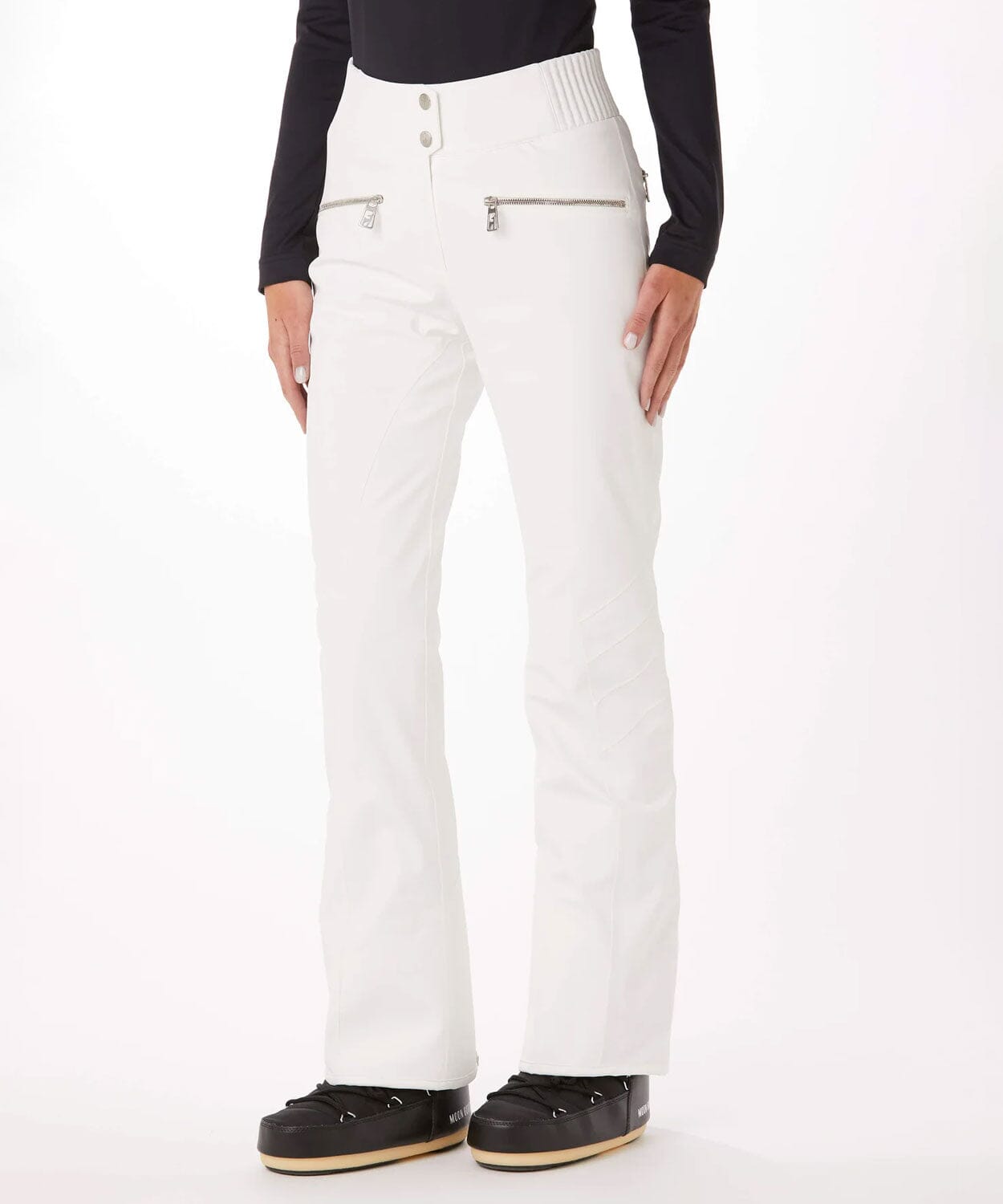
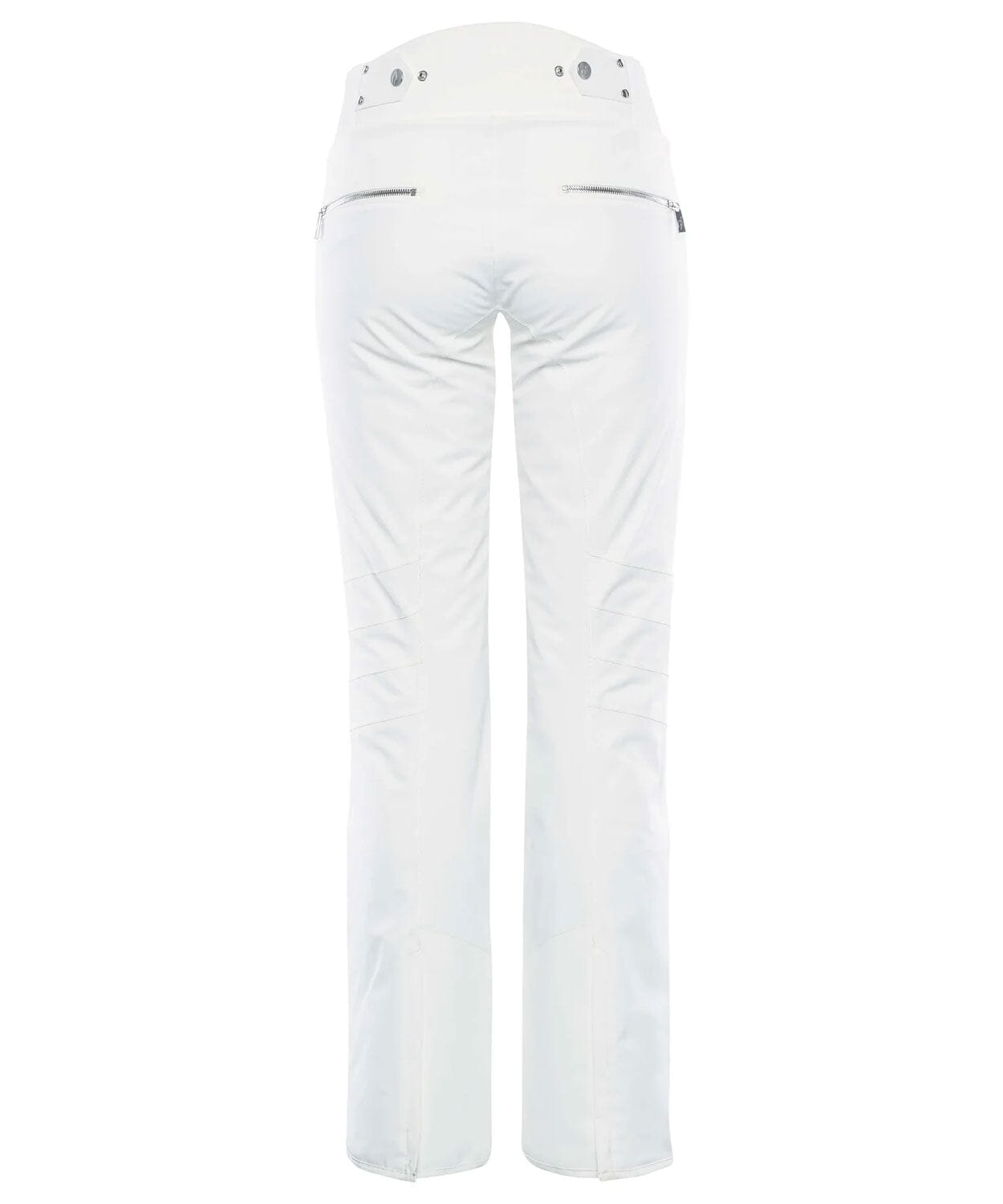
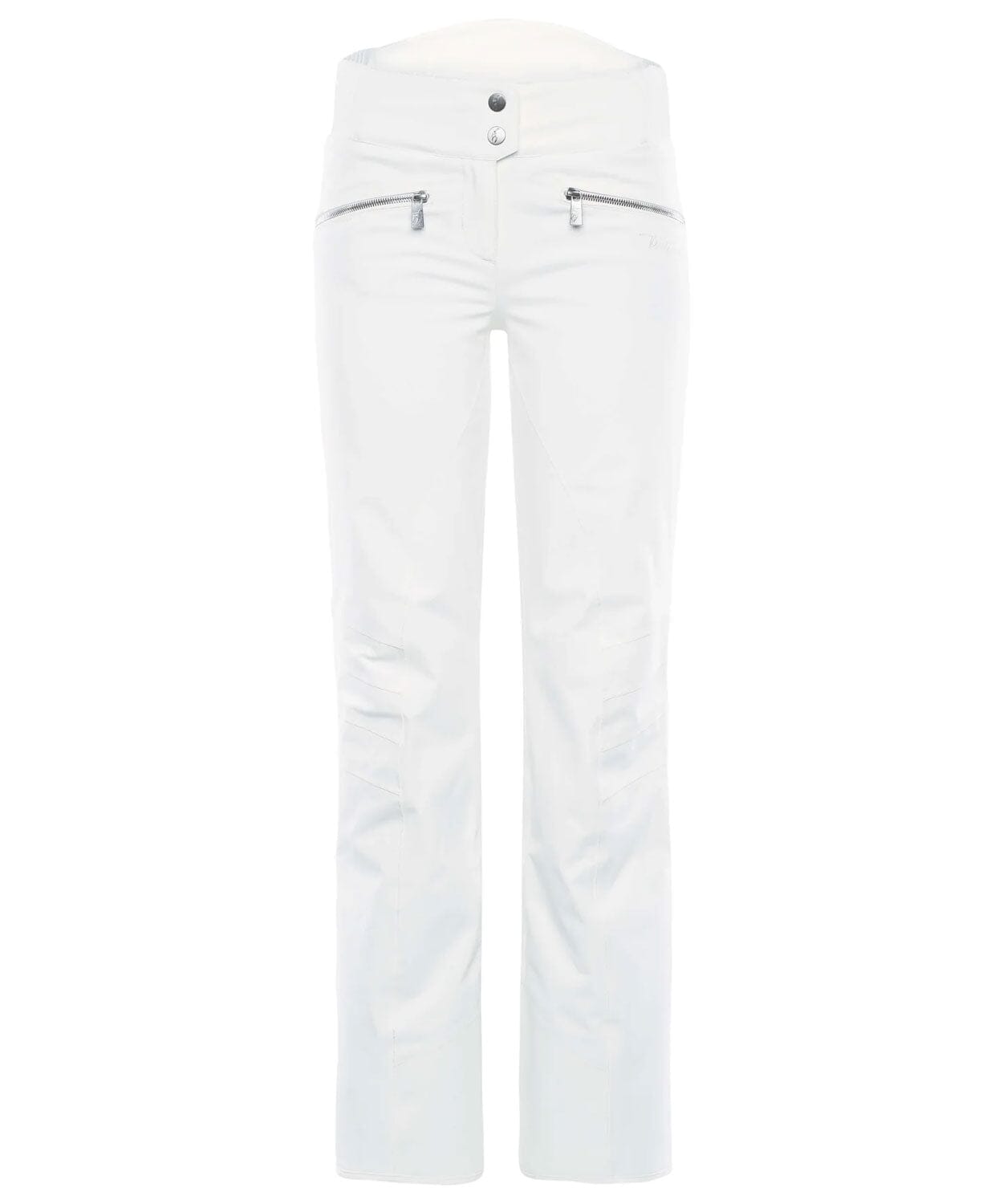
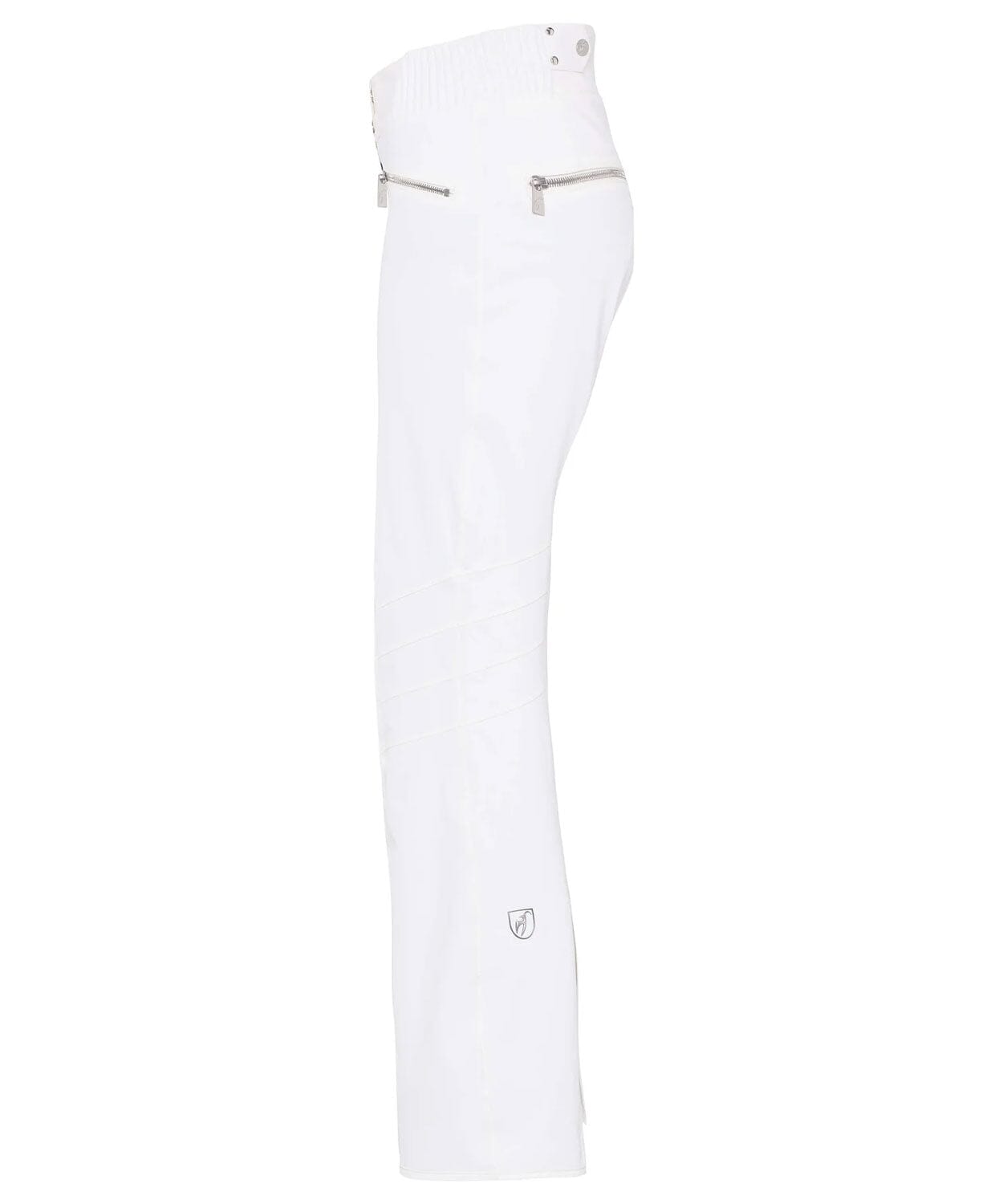
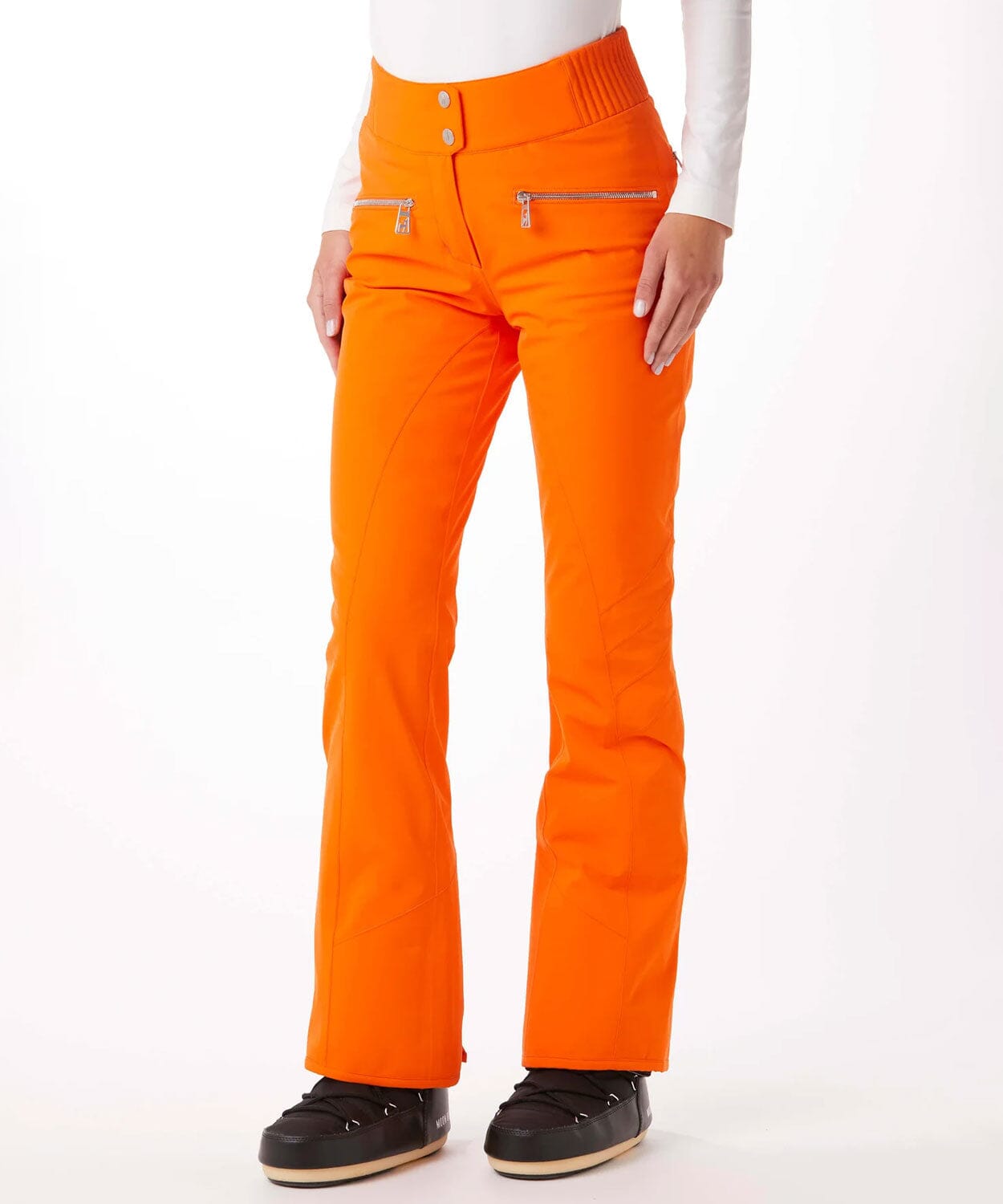
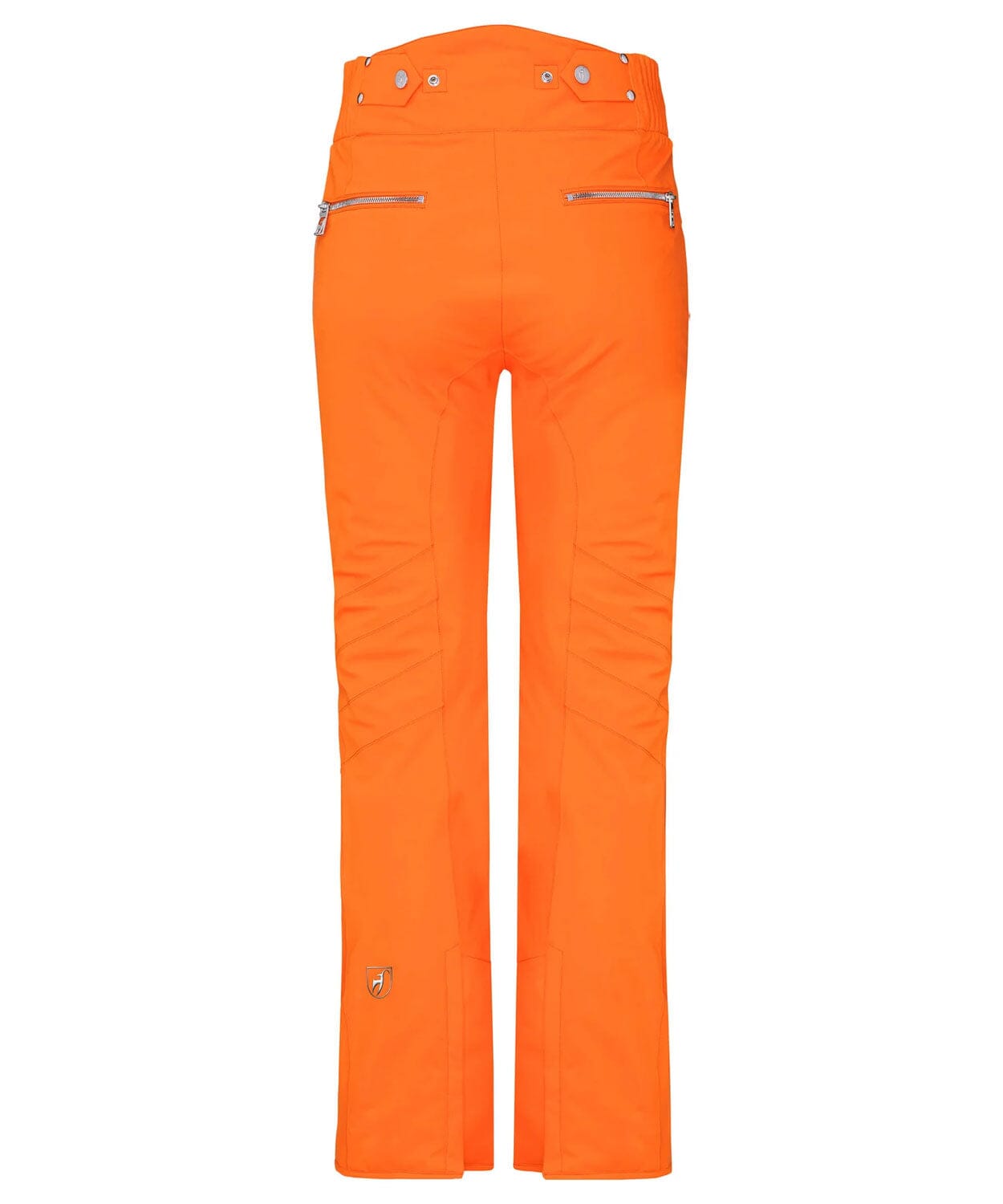
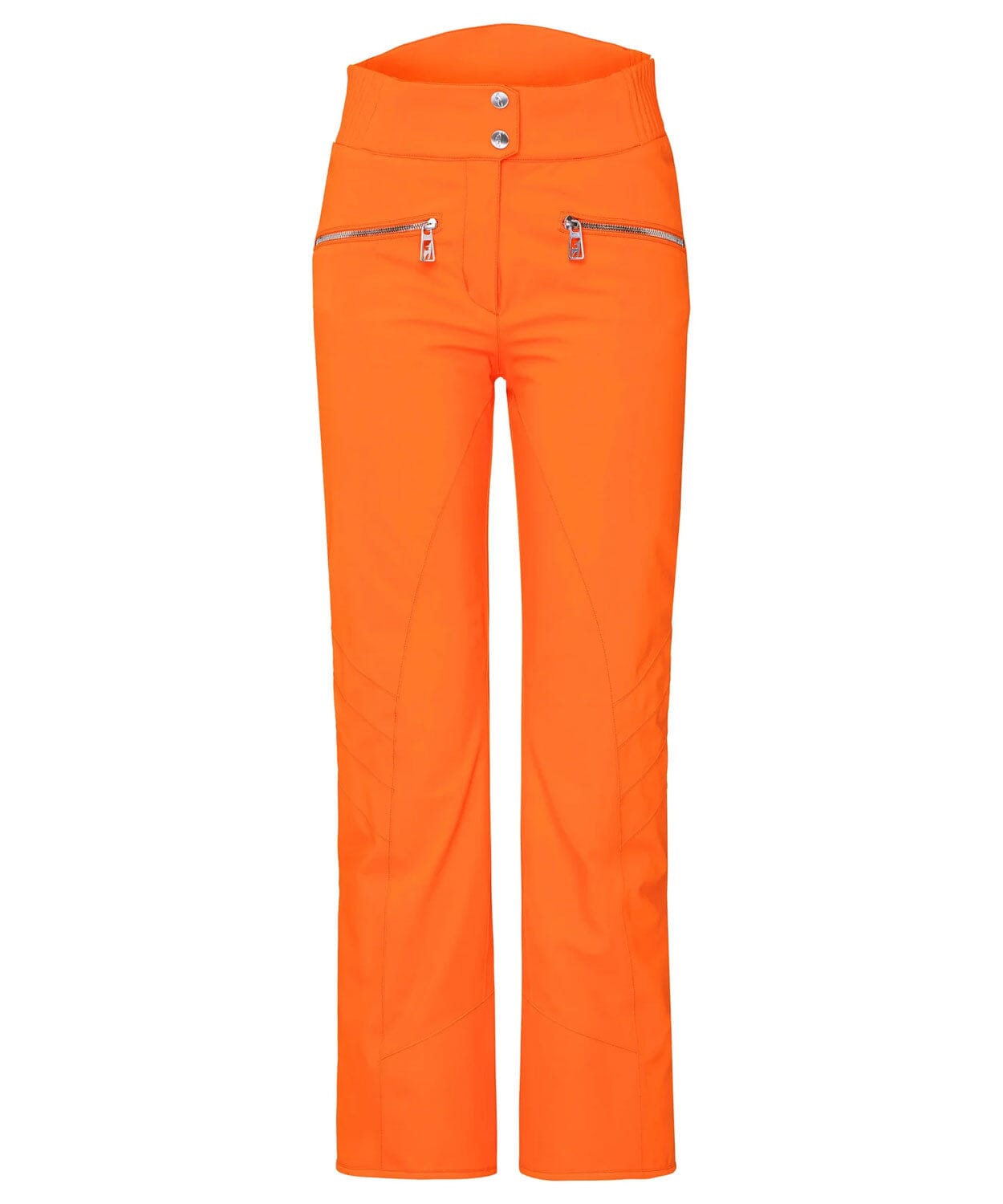
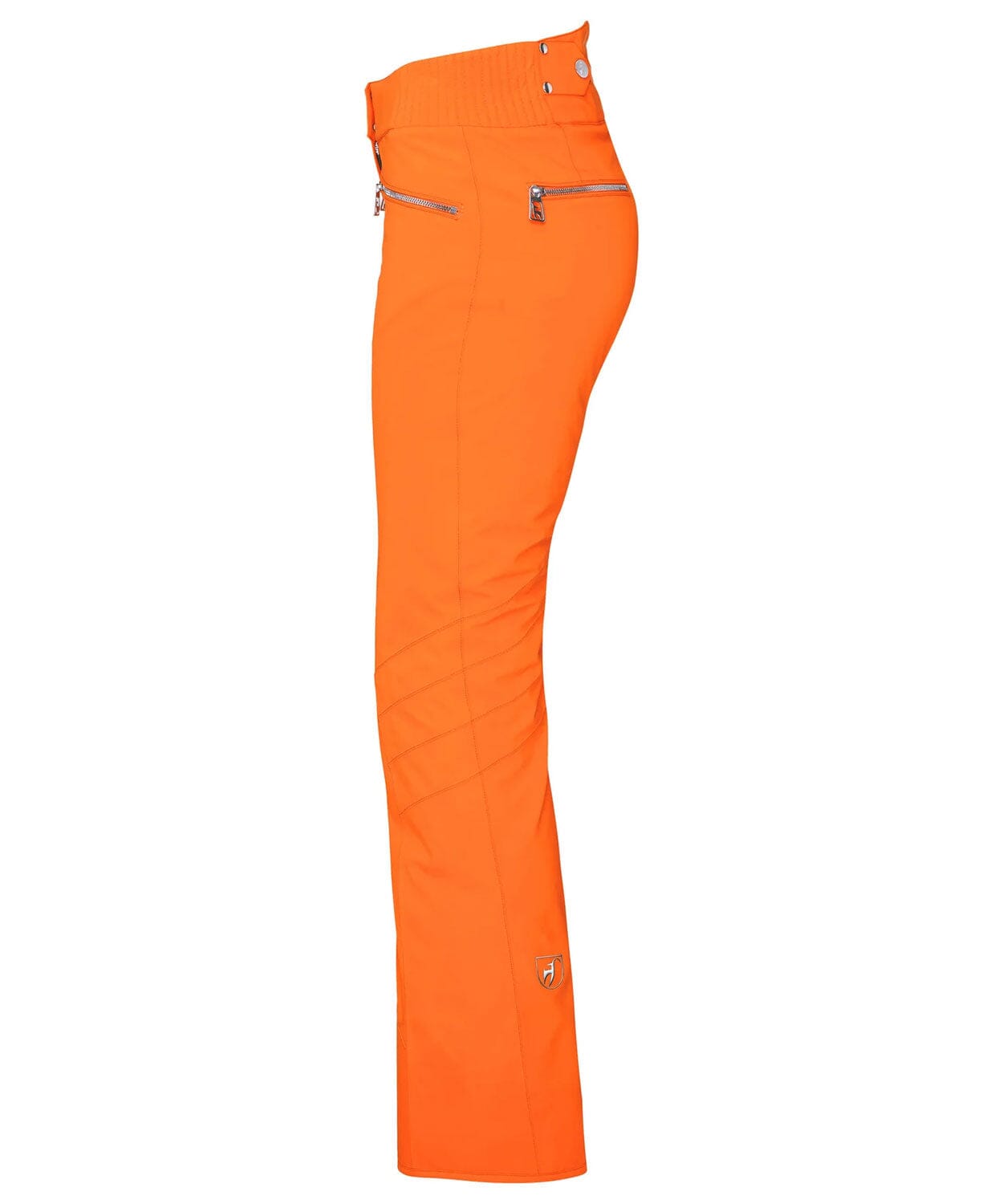
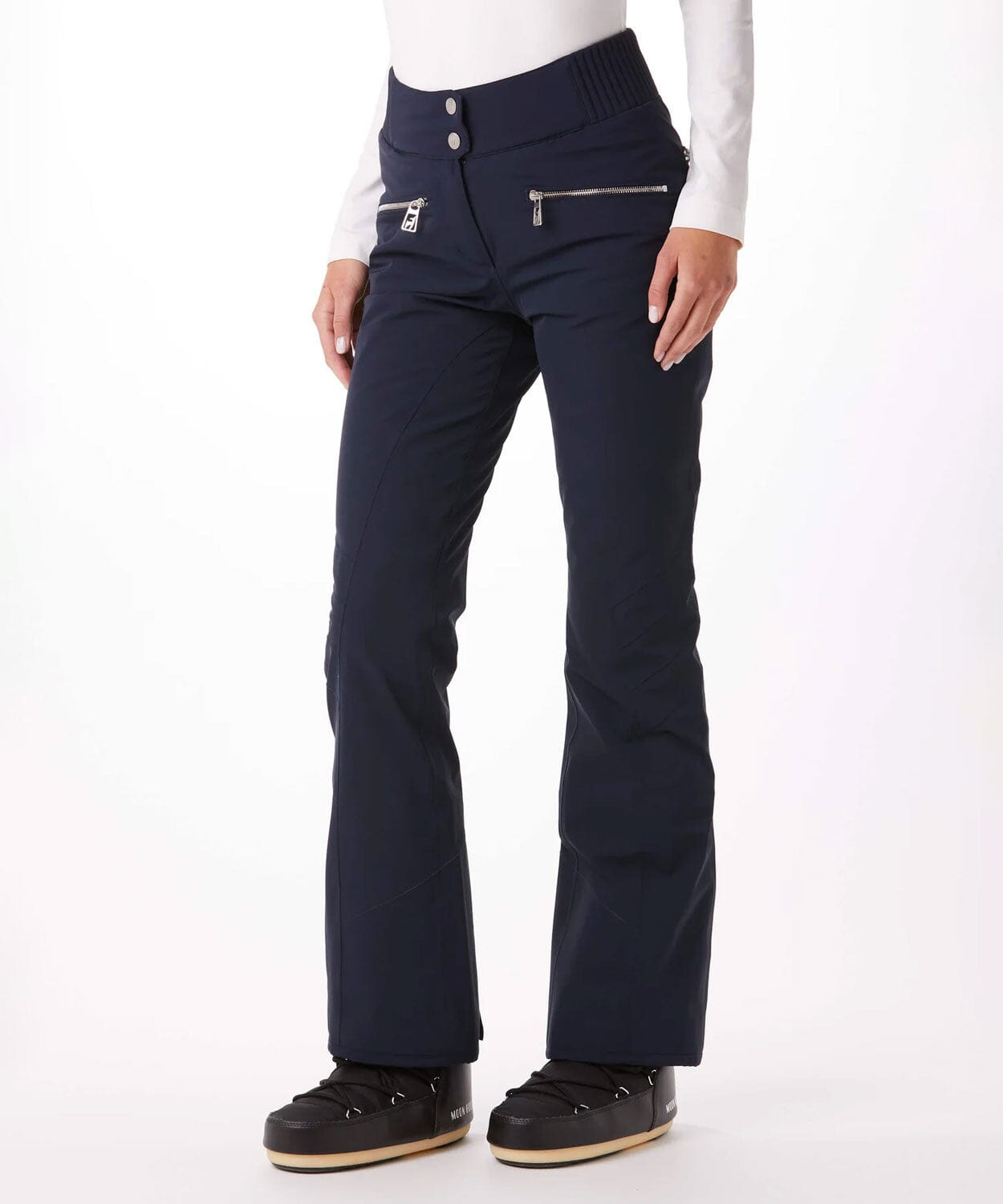
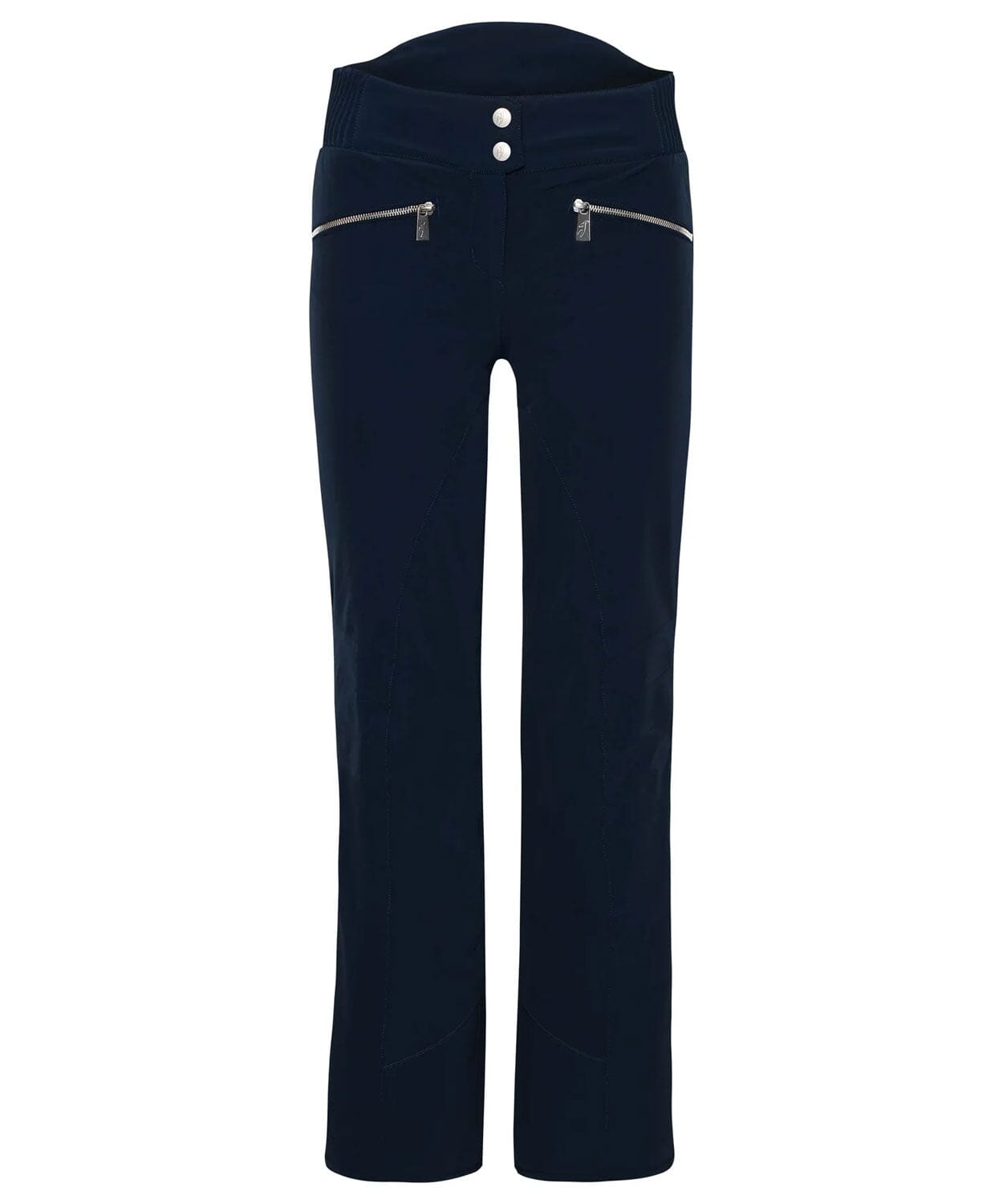
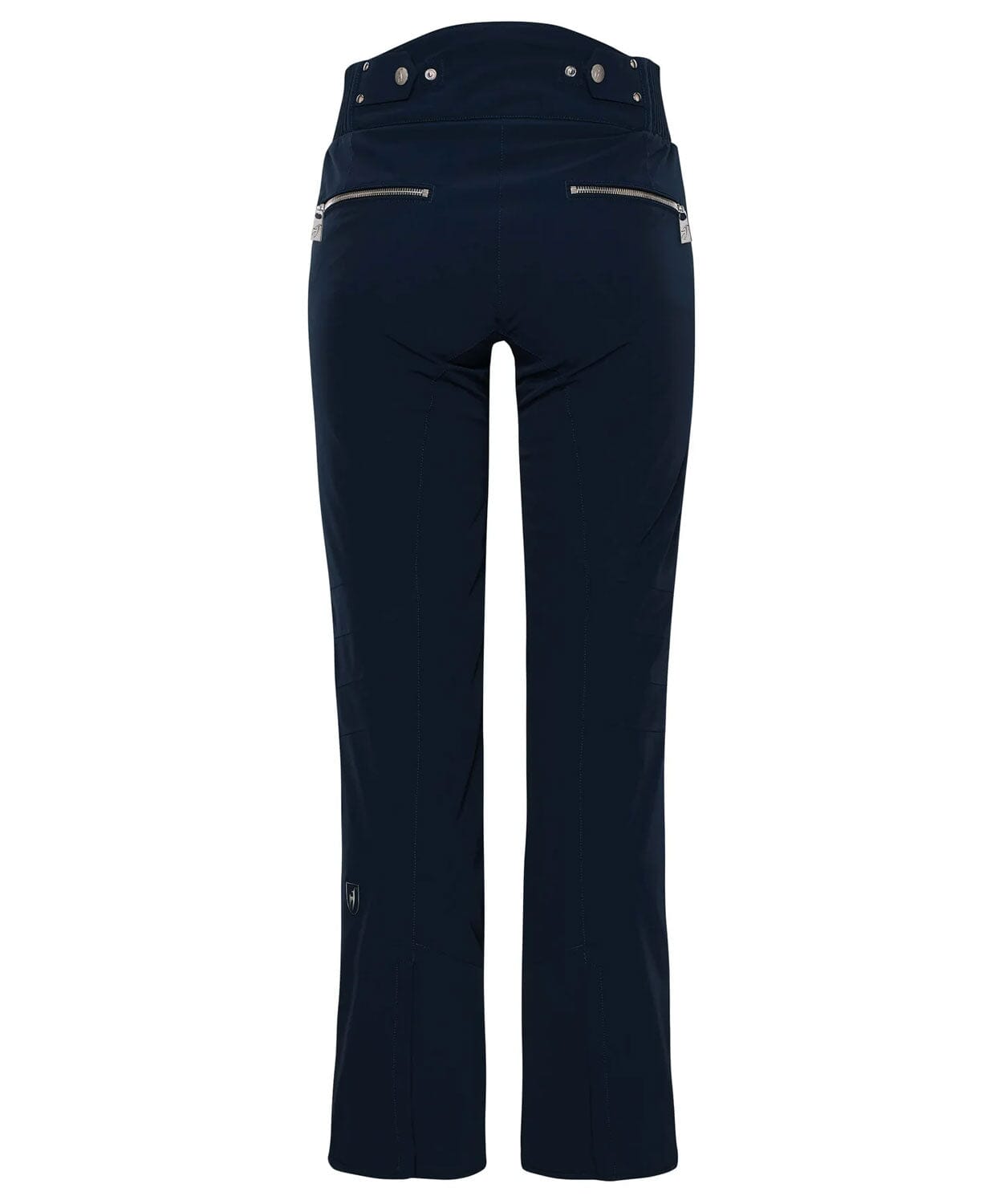
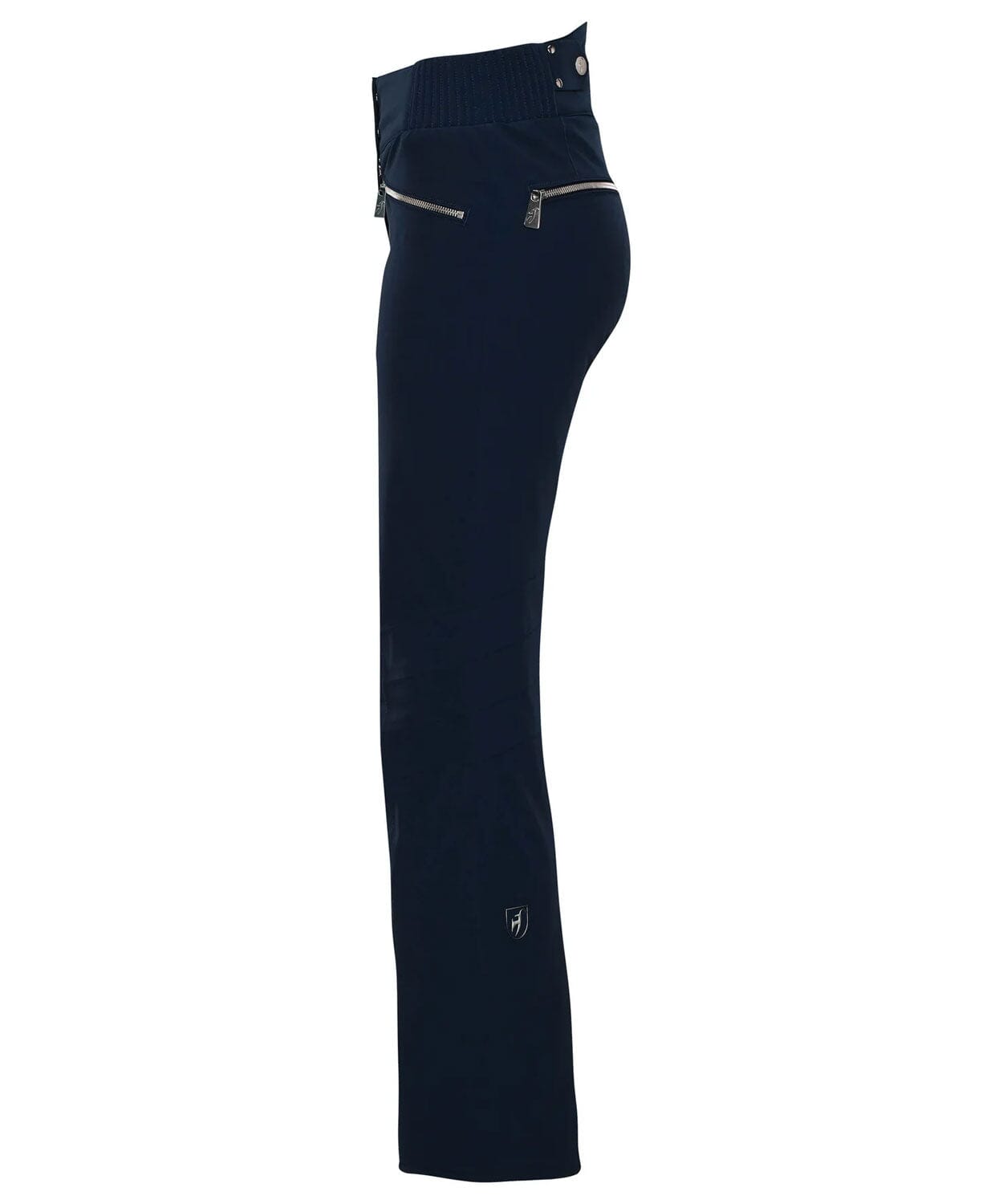
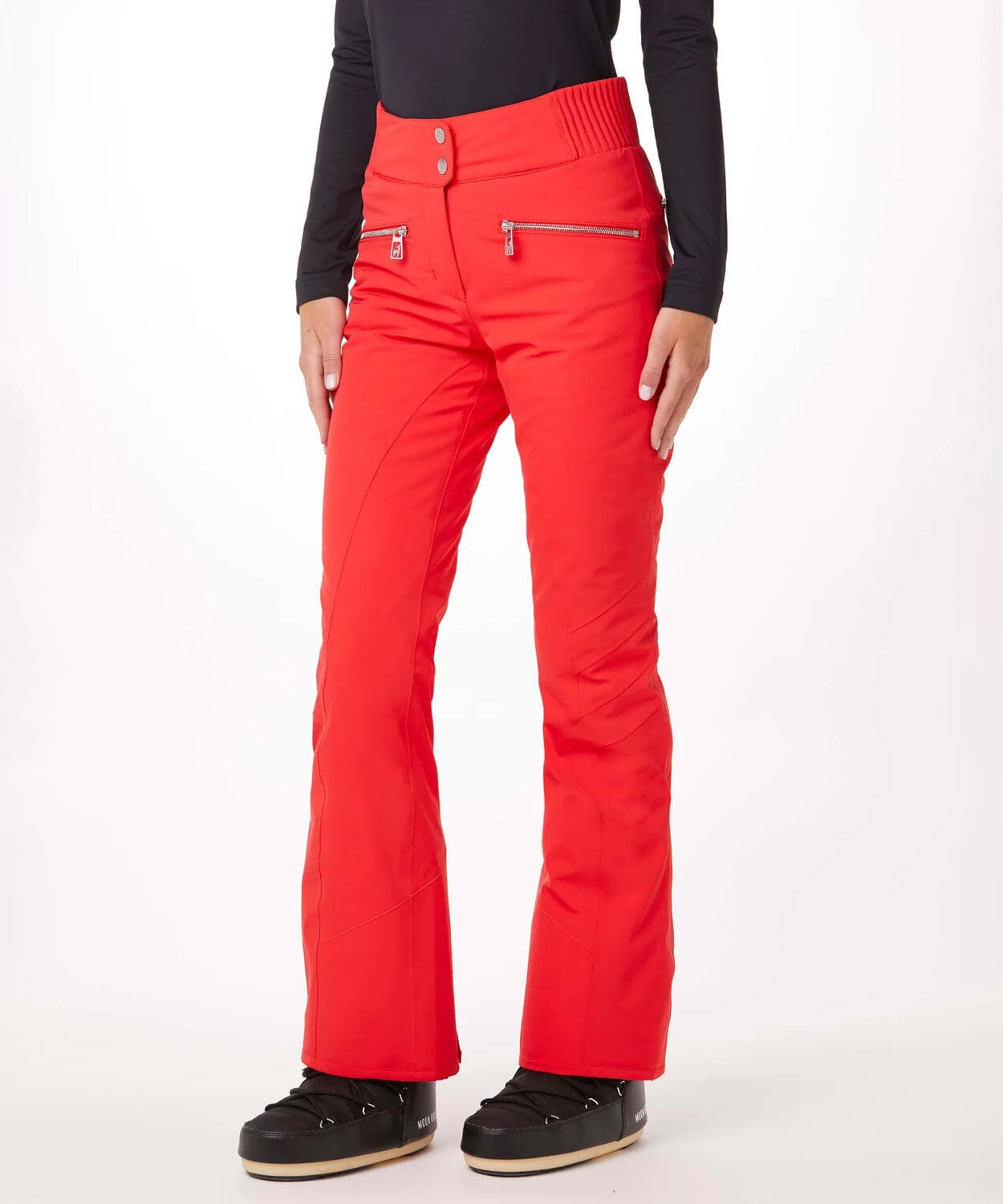
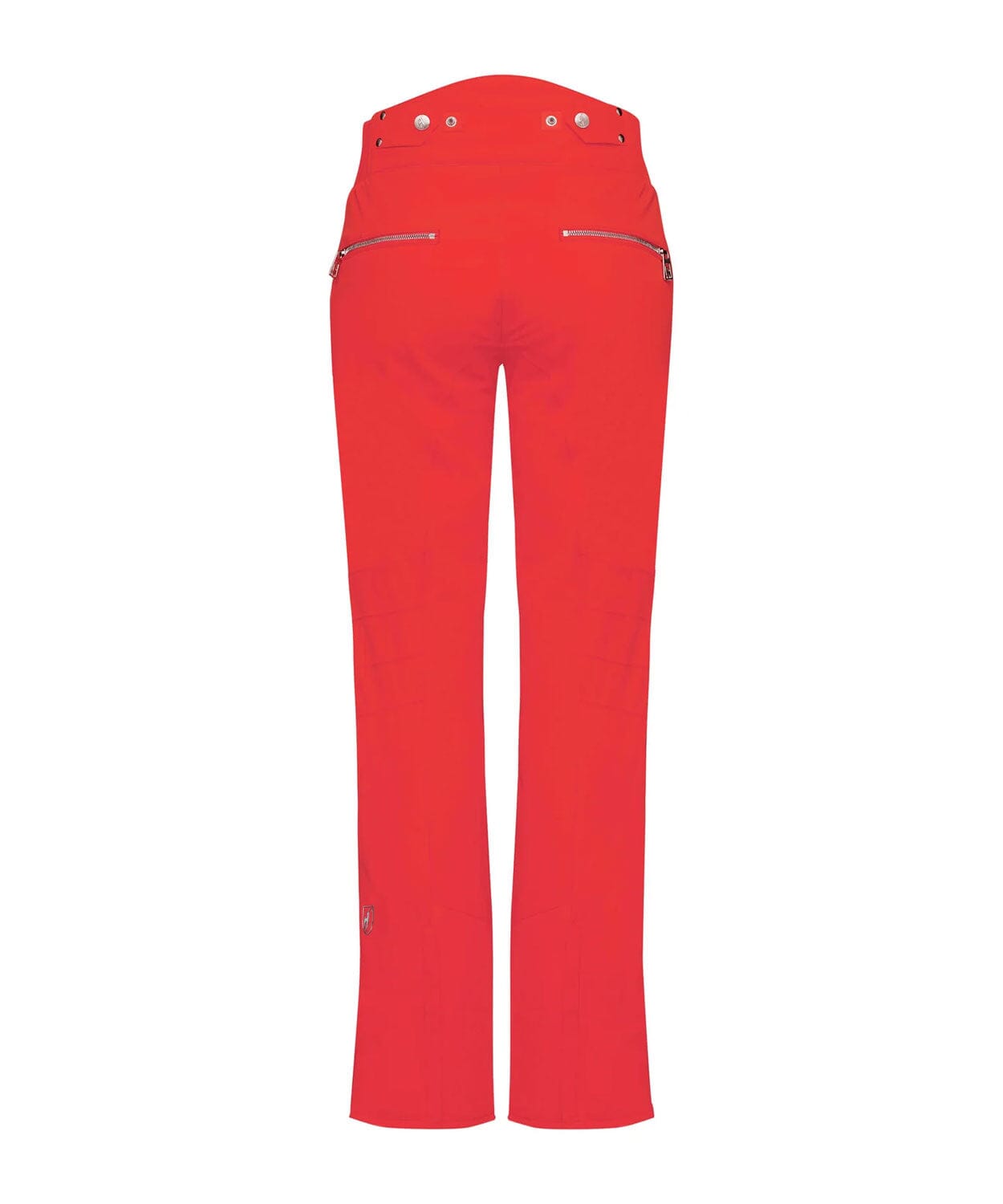
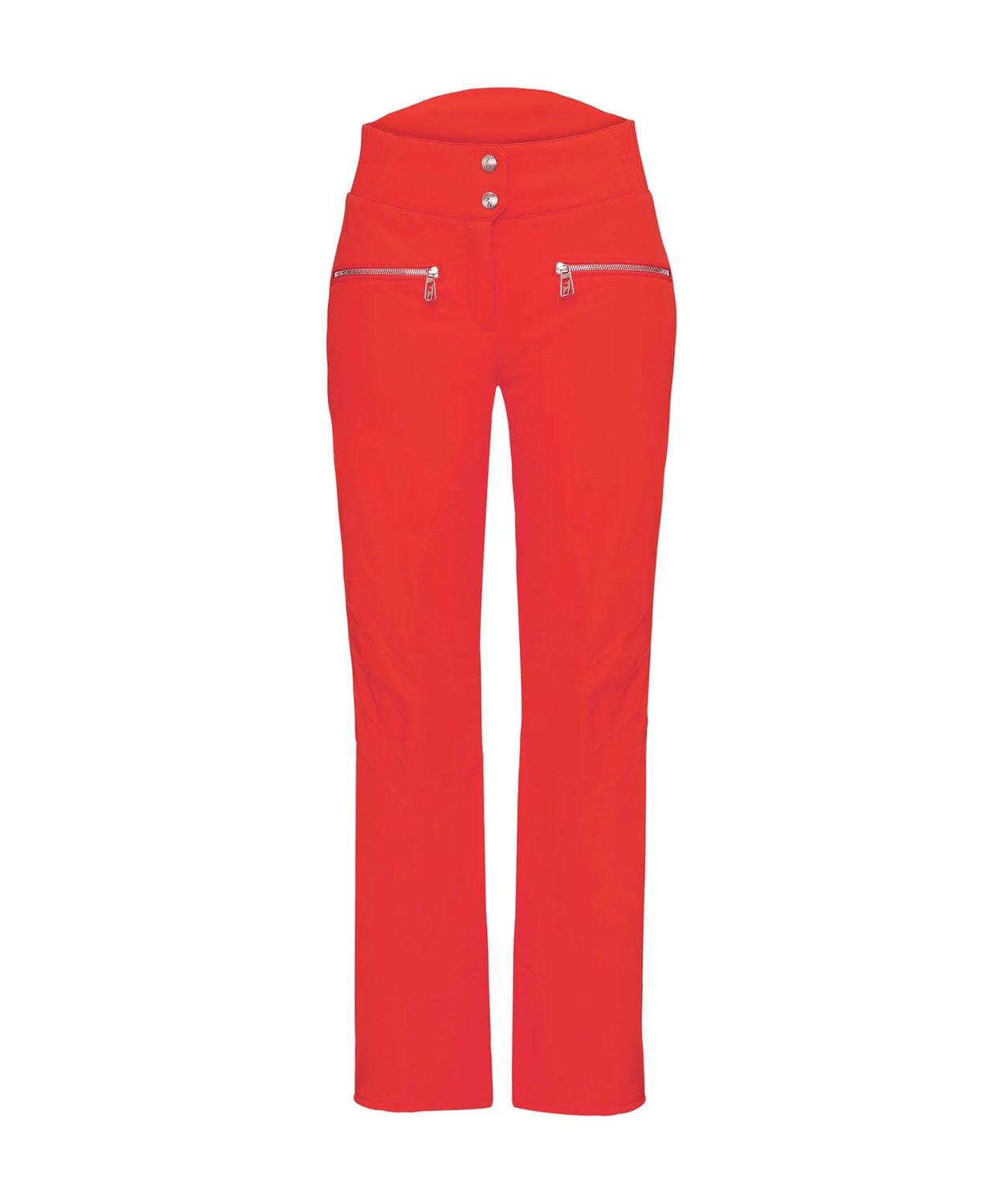
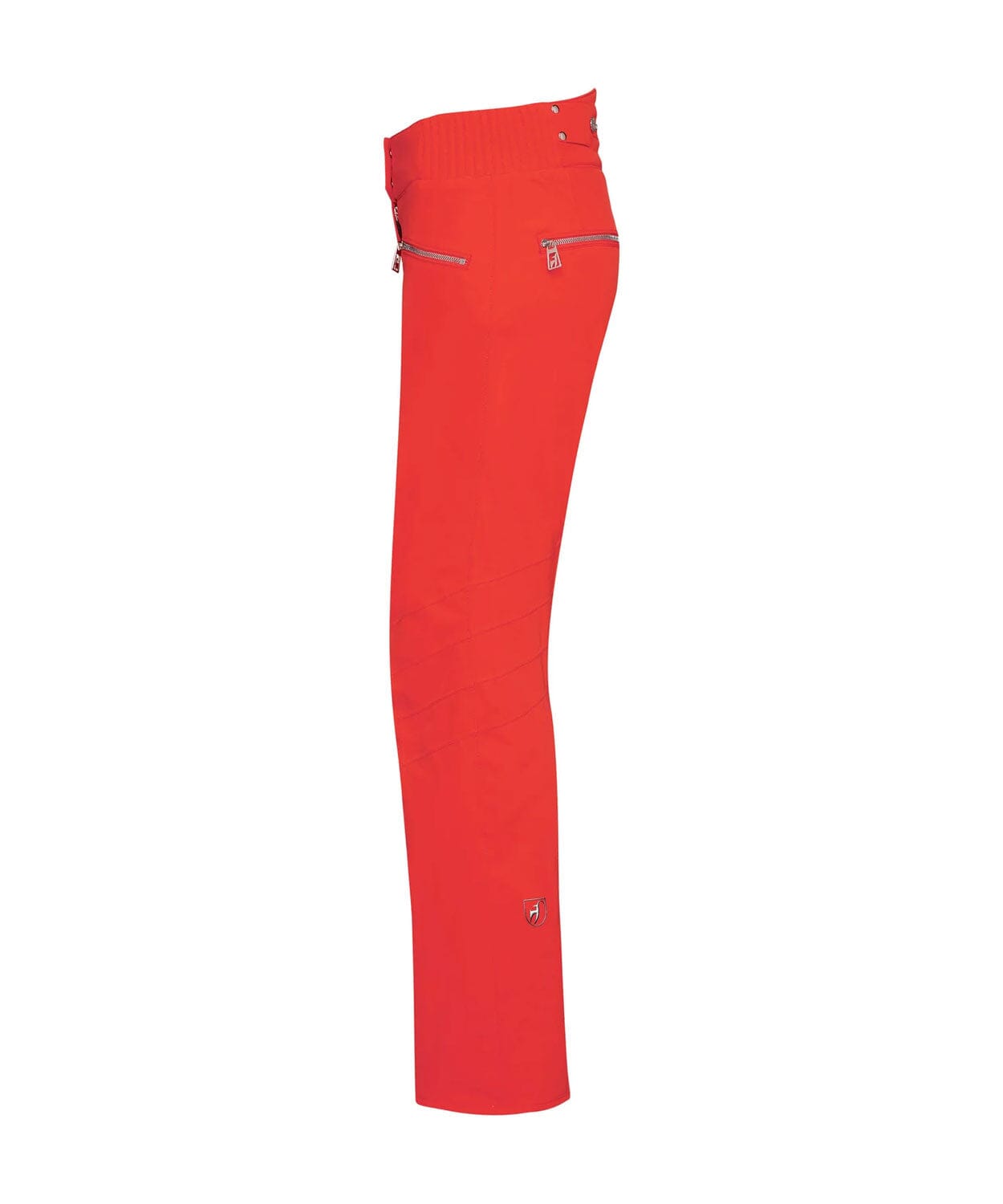
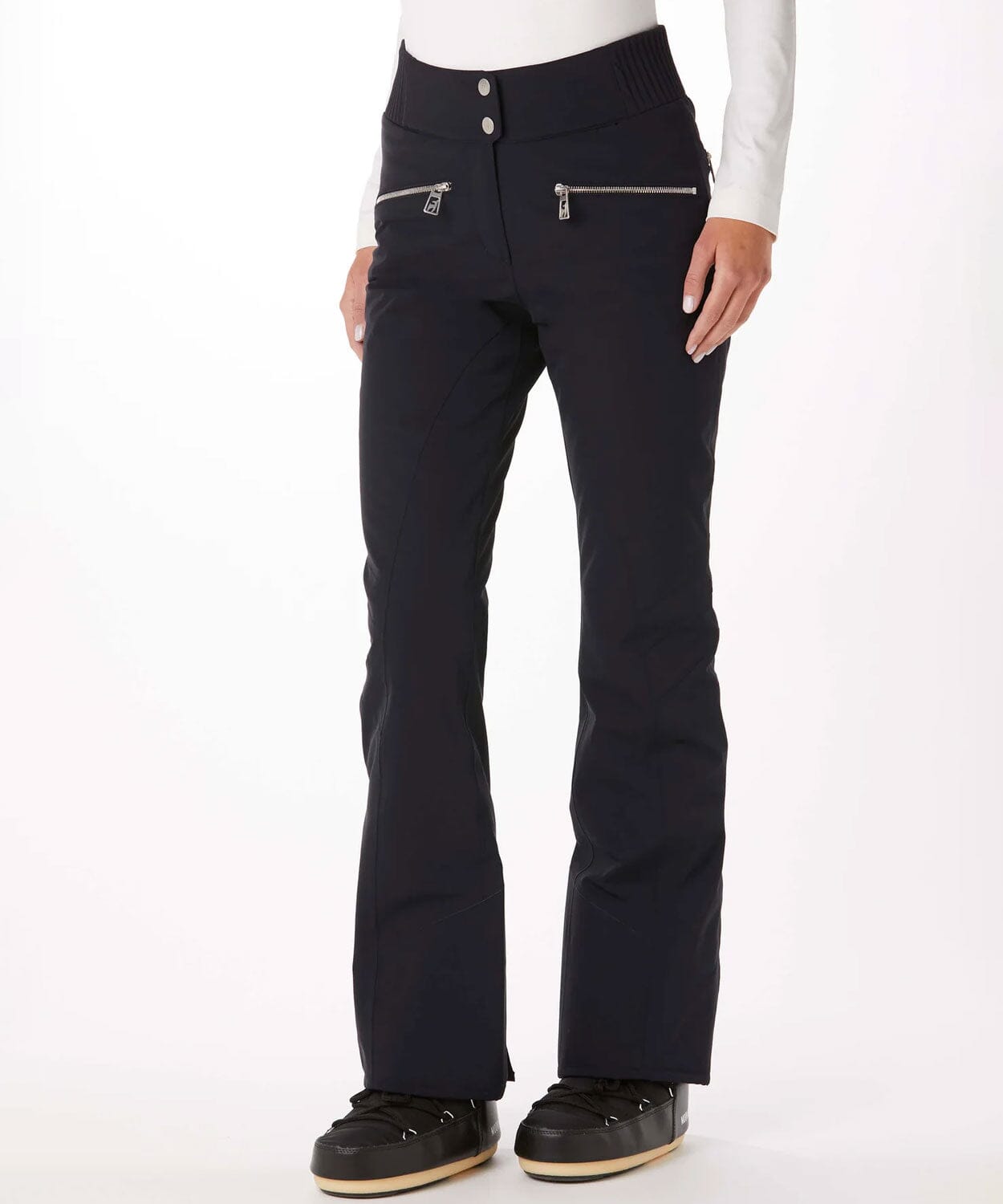
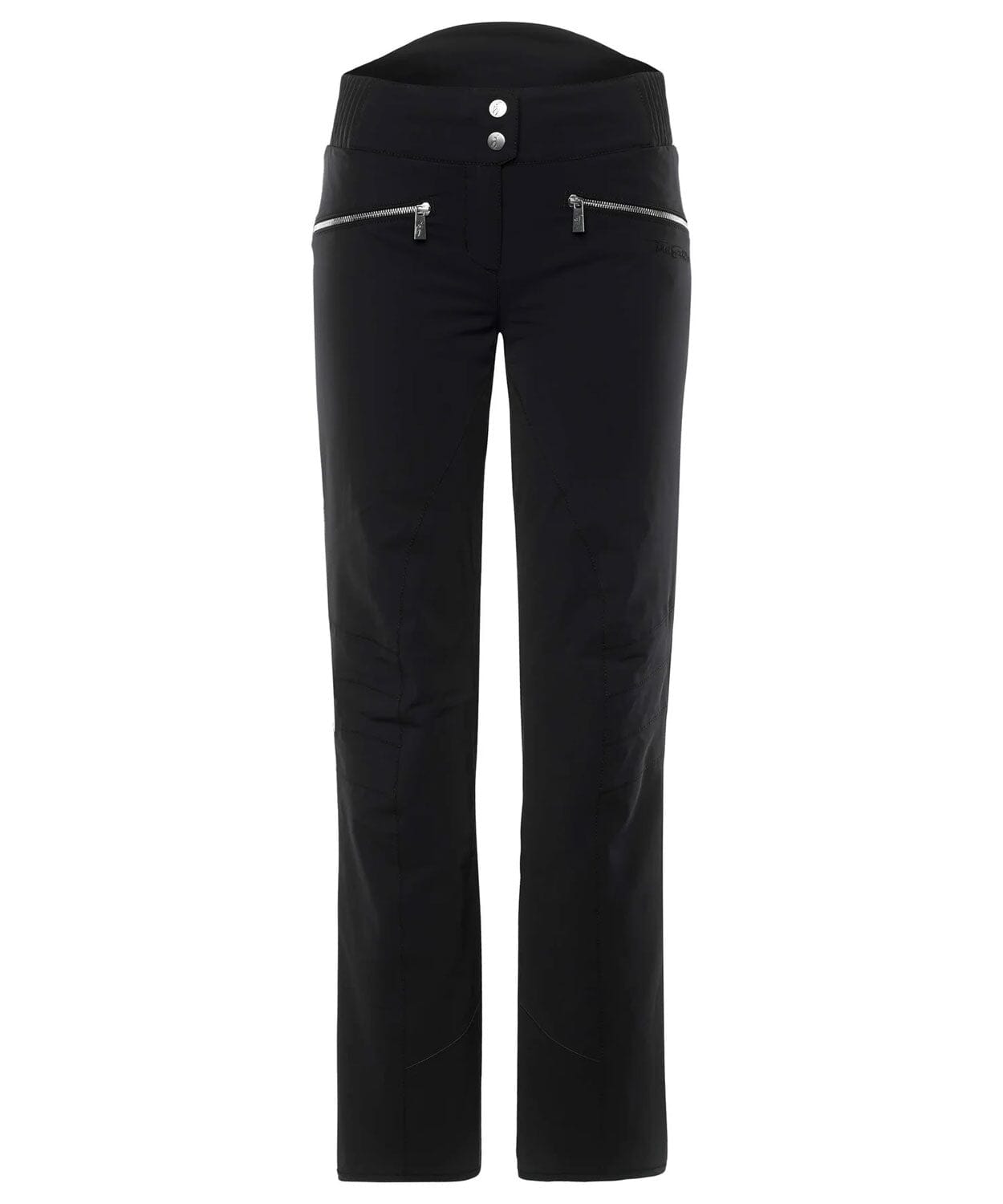
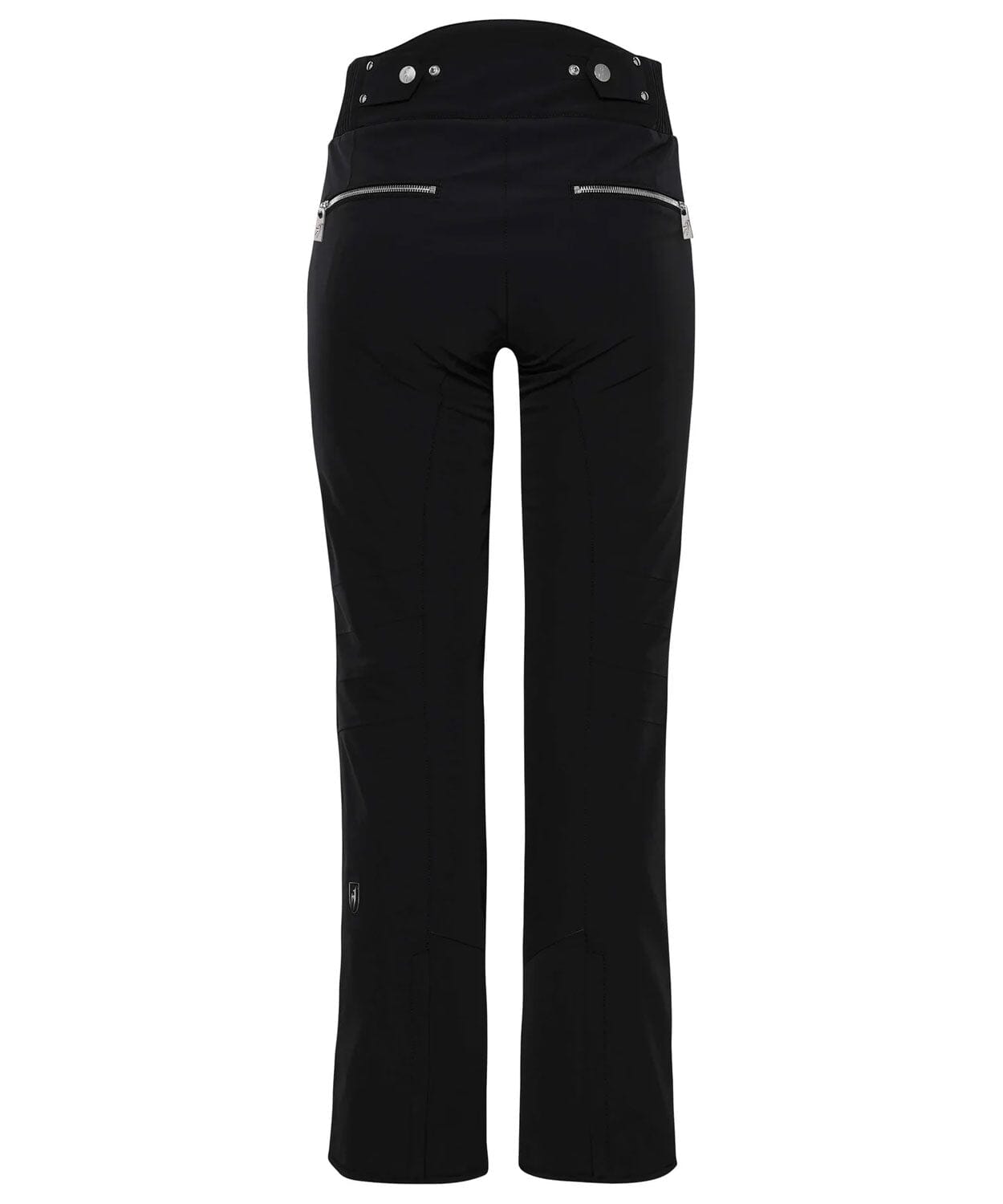
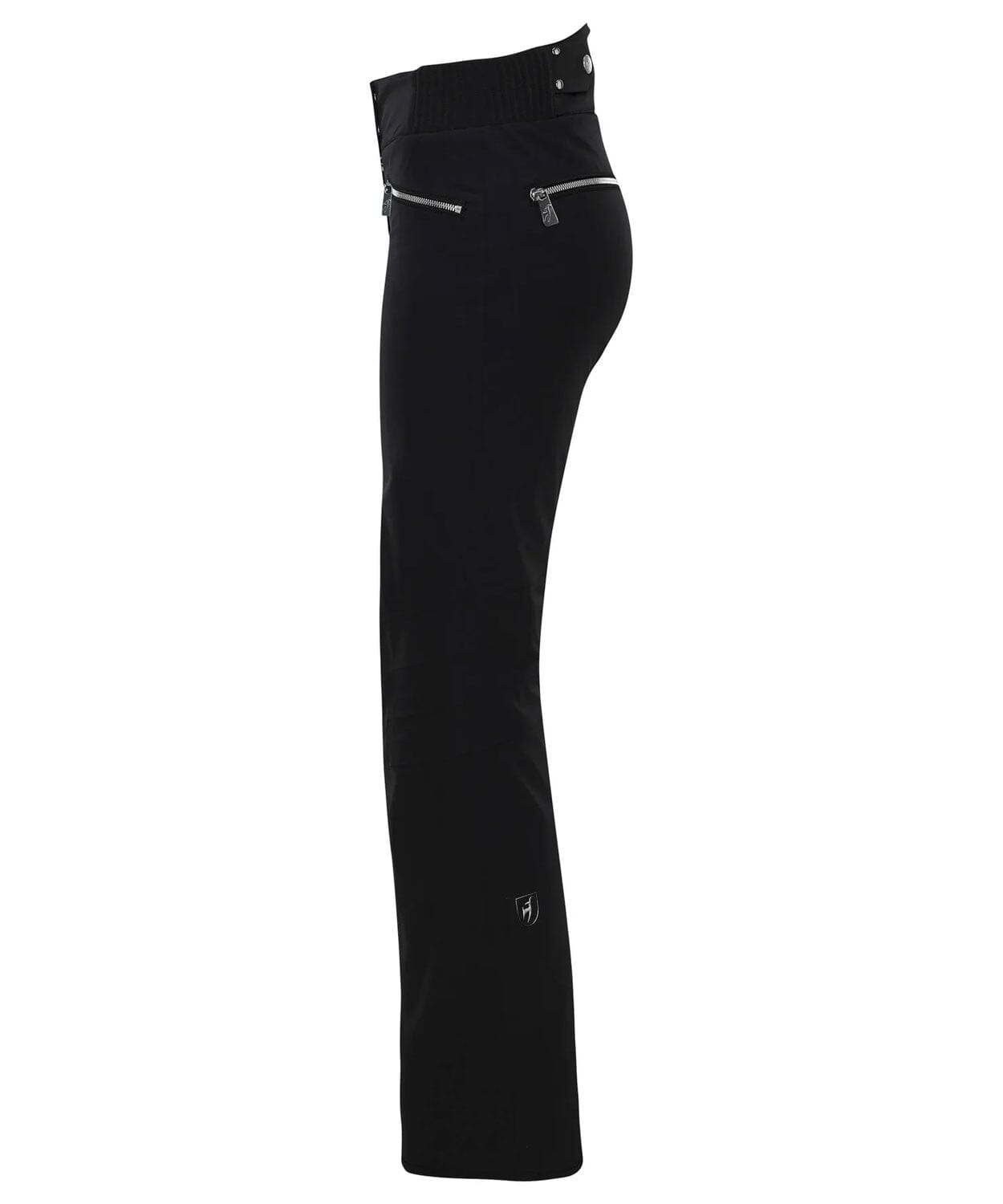




















Women's Alla Ski Pants
The Toni Sailer ALLA women’s ski pants are a seasonal bestseller, offering unbeatable comfort, weatherproof protection, and timeless style. Featuring hand-polished YKK EXCELLA® zippers and carefully designed details, they are a must-have for the slopes.
Details:
- water column 20,000 mm / breathability 20,000 g/m2/24h
- Premium 4-Way Stretch
- Fully Taped
- color-coordinated and glued edge protection
- Non-slip snow guard
- Anatomically adapted pattern and pre-shaped knees
- 2 front pockets
- 2 back pockets
- Elastic and adjustable waistband
- leg cuffs with zipper
- YKK EXCELLA® zipper
- laser-cut 3D logo
- DWR impregnation (PFAS-Free)
Size & Fit:
- Slim Fit
- The model is 177cm tall and wears size 36
The Toni Sailer ALLA women’s ski pants are a seasonal bestseller, offering unbeatable comfort, weatherproof protection, and timeless style. Featuring hand-polished YKK EXCELLA® zippers and carefully designed details, they are a must-have for the slopes.
Details:
- water column 20,000 mm / breathability 20,000 g/m2/24h
- Premium 4-Way Stretch
- Fully Taped
- color-coordinated and glued edge protection
- Non-slip snow guard
- Anatomically adapted pattern and pre-shaped knees
- 2 front pockets
- 2 back pockets
- Elastic and adjustable waistband
- leg cuffs with zipper
- YKK EXCELLA® zipper
- laser-cut 3D logo
- DWR impregnation (PFAS-Free)
Size & Fit:
- Slim Fit
- The model is 177cm tall and wears size 36
Toni Sailer
Toni Sailer unite premium ski clothing for women and men with the highest functional requirements and fashionable statements - naturally oriented toward the elegant appearance of the ski legend and style icon Toni Sailer.
See collection
Tech Info
The ALLA women’s ski pants combine premium 4-way stretch fabric with lightweight TS padding and a high-density stretch lining for warmth and flexibility. Fully taped seams ensure complete weatherproof protection.
Warmth Rating
Staying Warm
In general, padded jackets are warmer but less versatile than shell jackets, which have little or no insulating material.
The story goes that natural down insulation is less bulky than synthetic padding but loses its thermal properties when it's wet, whereas synthetic insulation works better when wet but tends to be more bulky and not as easy to compress into a small package. However, newer forms of synthetic padding are less bulky and more compressible, mimicking down, and may even be stretchy and breathable.
There are two types of scenarios when a skier purchases a jacket.
Skier one: Likes to ski moderately to hard and can get warm when doing this.
We recommend either a waterproof and breathable shell, paired with an insulation jacket. This allows you to stay warm when its a cold day. Or shed the insulation jacket on a warm day to utilise the light properties of a shell jacket.
Pros: You have a second functioning jacket which you can walk around town with or use a light travel jacket.
Brand suggestions:
- Peak Performance
- Black Yak
- J.lindeberg
Cons: Purchasing a shell outer jacket and and insulation jacket can put some people off.
Skier two: Can ski comfortably around doesn't like to push to hard and wants to wear the jacket to Apres ski.
We recommend a Down or Primaloft insulated jacket. These provide the highest level of warmth around your vital organs.
Pros: Warm and stylish jackets
Cons: You can get to warm depending where you ski.
Brand Suggestions:
All brands make these jackets just look for an insulated jacket.
water proofing
Let's talk waterproofing and how the scale works.
Waterproofing is measured in numbers; 20k for example. The number refers to millimeters and the amount of pressure the fabric can stand before water starts to leak through. The easiest way to paint the picture is if you imagine 20 000 millimeter hollow tube. Let's now take that tube and place it on a 20 k fabric. If we then fill it up with water, the fabric will not let any water pass through. If this would have been a 15 k fabric though, you can probably imagine what would have happened instead? This is what the number means, but that's not how a jacket is used.
So, what does different numbers means to you and how to use our 1-5 scale?
1: 3000mm ( Water Resistant )
Entry level - 3000mm is still considered waterproof but won't last for more than light rain.
2: 5000mm ( Snow Proof )
If you ride in cold and clear conditions, you can get away with this level. We don't recommend wearing this when the bad weather hits (unless you like being cold and wet).
3: 10 000mm ( Waterproof )
Wear this is you like long days on the mountain, even when there's bad weather. 10k is a good level.
4: 15 000mm ( Wateproof )
Rain and wet snow don't stand a chance with this. If you live in wetter climates (Australia we're looking at you) 15k is a good, if not great choice. It takes a lot to pass through the membrane.
5: 20 000k and up, also known as (Keep You Dry In Your Own Shower k)
If you enjoy the outdoors, skiing backcountry or need to be prepared for everything situation, you should be looking at 20k and up for waterproofness and breathability. You'll thank us later.
- Designed for the slopes.






